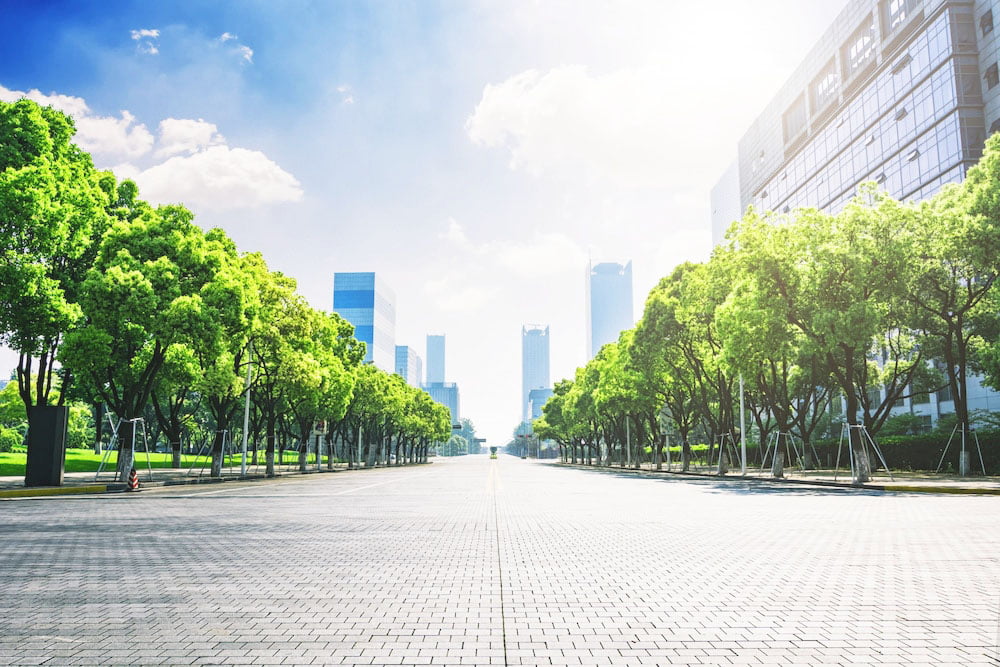Urban areas are the heartbeats of modern life, bustling with energy and creativity. But as cities grow, they can turn into concrete jungles that drain resources and harm the environment. So, how can we transform these urban spaces into eco-friendly havens? Let’s explore some awesome ideas for making our cities greener and healthier for everyone.
Embracing Green Spaces in the Concrete Jungle
Imagine stepping outside your apartment and being greeted by lush parks rather than dreary sidewalks. Green spaces play a vital role in city life. Parks, gardens, and tree-lined streets not only beautify a neighborhood but also improve air quality and promote mental well-being. Cities can create more green areas by turning vacant lots into community gardens and planting trees along streets. This simple act can increase biodiversity, providing habitats for birds and insects, and also give residents a place to relax, exercise, or socialize.
Smart Waste Management: Trash to Treasure
Picture a city where waste is transformed into resources instead of piling up in landfills. Smart waste management systems help cities reduce trash and promote recycling and composting. Educating residents about sorting waste makes a big difference, leading to less garbage and more materials that can be reused. Cities can even set up programs that turn food scraps into compost, enriching the soil for community gardens. Turning trash into treasure not only benefits the environment but also fosters a sense of community responsibility.
Sustainable Transportation: Moving in a Greener Direction
Getting around the city can be a challenge, but it doesn’t have to be a polluting nightmare. Sustainable transportation options like cycling, walking, and public transit play a key role in reducing carbon emissions. Cities can invest in bike lanes, pedestrian paths, and efficient public transportation systems that make it easier for people to leave their cars at home. Imagine cruising down a bike path surrounded by greenery instead of stuck in traffic. This not only cuts down on pollution but also encourages a healthier lifestyle, as people are more likely to exercise when the options are available.
Energy Efficiency: Powering Down for a Greener City
Cities consume a lot of energy, but there are smart ways to reduce that. Energy-efficient buildings can make a huge impact. By using better insulation, energy-efficient windows, and renewable energy sources like solar panels, cities can cut down their energy use significantly. Imagine a skyline dotted with solar panels gleaming in the sun while buildings stay comfortable without cranking the heat or air conditioning. It’s not only good for the planet; it saves money on energy bills too.

Water Conservation: Every Drop Counts
Water is our most precious resource, and conserving it is crucial in urban areas. Cities can implement rainwater harvesting systems and promote water-saving fixtures in homes and businesses. Think about a neighborhood where rainwater from rooftops is captured and used for watering plants or flushing toilets. This simple change can reduce the demand for fresh water and keep our waterways cleaner.
Eco-Friendly Policies: Leading the Charge
For a city to thrive environmentally, strong policies must support eco-friendly practices. Local governments can promote green building codes and incentives for businesses that prioritize sustainability. It’s like planting seeds that will grow into a flourishing eco-friendly community. When policies are in place, everyone—from small businesses to large corporations—can be part of the change.
Community Engagement: Together for a Greener Future
A city isn’t just streets and buildings; it’s the people who live there. Community engagement is essential for a successful transition to a greener city. When residents come together for tree-planting events, clean-up drives, or environmental education workshops, it creates a strong sense of community. Imagine the pride of a neighborhood that transformed its local park into a vibrant, safe place through teamwork and collaboration. Everyone has a part in making the city greener and more sustainable.
Conclusion: The Future is Green
Creating eco-friendly urban areas isn’t just a dream; it’s a necessity for our future. By embracing green spaces, smart waste management, sustainable transportation, energy efficiency, water conservation, and effective policies, cities can transform into vibrant ecosystems. It’s time for us to roll up our sleeves and work together to build a greener, healthier, and more sustainable world for future generations. After all, who wouldn’t want to live in a city that breathes life and welcomes nature into our everyday lives?
Also Read: Luxury on Wheels: The Future of Automotive Innovation
Discover more from NoseyPepper
Subscribe to get the latest posts sent to your email.










Recent Comments